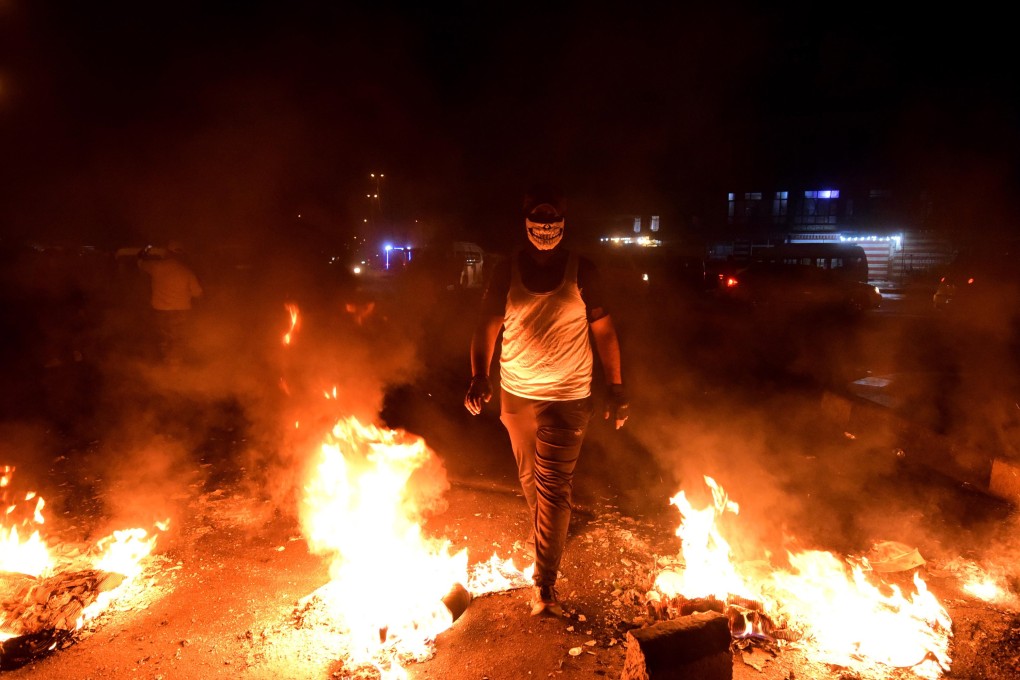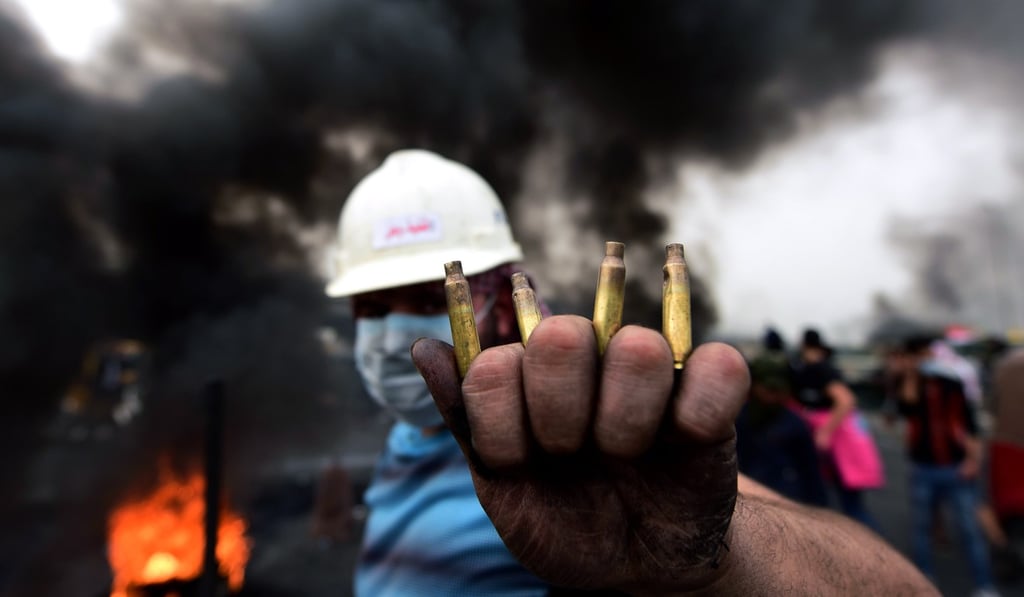Dozens wounded as Iraqis renew protests to pressure on government
- Iraqi activists gave the government a deadline to act on their demands for political reforms or said they would up the pressure with new demonstrations

Iraqi security forces wounded dozens of protesters on Sunday as renewed anti-government demonstrations gripped the capital and Iraq’s south, activists and officials said.
The mass protests had lost steam when soaring US-Iran tensions threatened an open conflict on Iraqi soil in past weeks.
As the regional crisis receded, Iraqi activists gave the government a week’s deadline to act on their demands for sweeping political reforms or said they would up the pressure with new demonstrations.
The uprising began on October 1 when thousands of Iraqis took to the streets to decry rampant government corruption, poor public services and a scarcity of jobs. Protesters are demanding an end to Iraq’s sectarian political system, alongside early elections and the stepping aside of its ruling elite.
Clashes between protesters and security forces in central Baghdad wounded at least 27 people on Sunday. Security forces fired tear gas to disperse crowds in Tayaran square and the nearby Sinak bridge, wounding 23, an activist and two medical officials said. Some protesters hurled rocks at police, wounding four personnel, a security official and two medical officials said.
